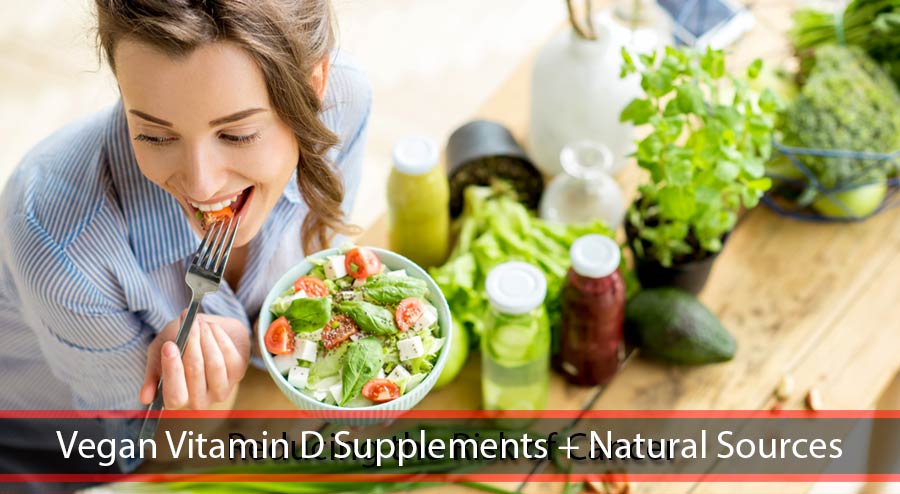
Vitamin D deficiency is a real problem in today’s day and age. Jobs that require working for hour upon hour inside without sunlight can dramatically decrease exposure to natural vitamin D, which can be exacerbated if you live on a plant-based diet. Luckily, there are many different ways you can go about increasing your vitamin D levels, including taking supplementary vitamins and minerals, including include food, natural resources, and, of course, supplements.
Your body needs vitamin D in order to regulate cell growth and also absorb calcium. Without these abilities, your body would not function as it should. There have been some links to a deficit in vitamin D leading to cancer, muscle weakness, and even mental illnesses like depression. Therefore, it is critical that a person receives the right amount of vitamin D on a regular basis.
Differences Between vitamin D2 and D3
Page Contents:
When you start exploring the type of vitamin D you need in your life, you may notice there are some variations of the vitamin. For example, there is vitamin D2 and vitamin D3. Those who live a vegan lifestyle tend to get caught up in the intricacies of trace amounts of vitamin D in animal products. However, there are various other ways to get your vitamin D than through animal products so that you can stay true to your vegan lifestyle.
Vitamin D2 comes from plants, and vitamin D3 comes from lanolin (sheep’s wool) or lichen (algae). Obviously, one of these sources is not vegan-friendly, which means you must find ways to get the right amount of vitamin D from other sources than animal products.
Ultimate Vitamin D Levels
Over the last few decades, health specialists have recommended various doses of vitamin D depending on a person’s health risks and history. For the most part, recommendations have been based on how much vitamin D could help prevent diseases.
There have been studies in recent years that have shown that adequate levels of vitamin D could reduce the risk of certain people developing debilitating diseases such as fibromyalgia, rheumatoid arthritis, and even multiple sclerosis.
There is also a longer list of possible conditions and diseases that vitamin D could help reduce, which means that the benefits of having the right amount of vitamin D in your body are great.
Recent studies have found that the ideal levels of vitamin D for a healthy person should be between 80 and 100 nmol/l (32 to 40 ng/ml). Unfortunately, as much as researchers would like for it to be true, there has been no correlation between vitamin D levels and consistent findings that it decreases the development of cancer or other types of life-threatening issues. But the truth is that vitamin D can do great things for the body and should be included in your daily diet—no matter what type of lifestyle you’re living.
Vegan Vitamin D Concerns
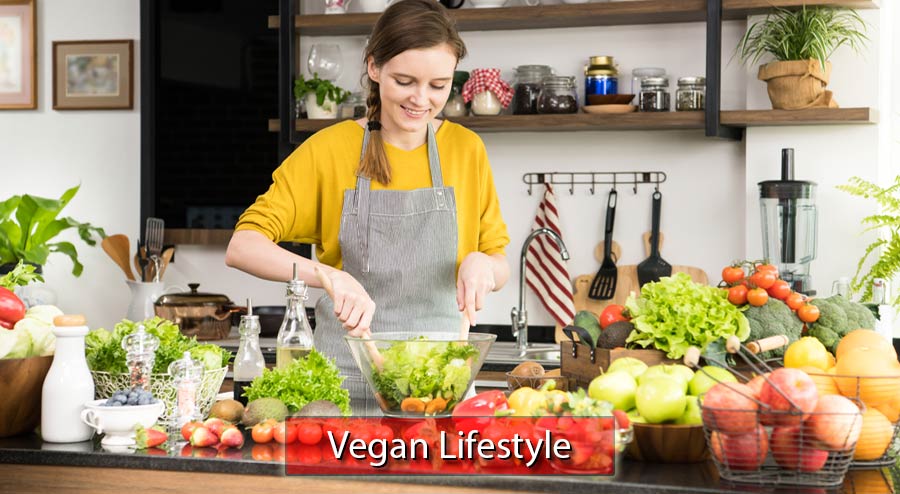
It’s probably a no-brainer that the first thing people get concerned about when they take on the vegan lifestyle is how they will obtain certain vitamins. Previously, people who were not vegan might have found that it was easy enough to receive the required vitamins into their body through their daily food intake. However, because vegan eating habits call for no animal products or by-products whatsoever, the inclusion of some vitamins (such as vitamin D) can be more difficult. However, that isn’t to say it is impossible!
If you’re new the vegan world or looking into becoming vegan, it is important to understand that you can find vitamin D through other sources. It’s also important to understand which of the following would be the best source of vitamin D for a person following a vegan diet before you embark on the journey. Knowing where to get vitamin D in a vegan diet is crucial to ensuring that your body stays in tip-top shape while also staying true to your vegan desires.
There are plenty of sources in which you can get your vitamin D that doesn’t revolve around animals. Knowing what vegan foods have vitamin D, how to get vitamin D as a vegan, and what supplements work best for your lifestyle will set you up for major success in the long run!
Sunshine and Your Age: Why It Matters
When your baby was born, you may have had a doctor that encouraged direct sunlight exposure for a certain amount of time each day. Alternatively, you may have an elderly family member who is prescribed a specific amount of direct sunlight each day. A person’s age does matter when it comes to understanding how to use sunlight as your source of vitamin D. If you or your family follow a vegan lifestyle, you can use the natural resource of sunlight to give you what you need in the vitamin D department.
Elderly People
It is recommended that elderly people enjoy at least 30 minutes a day of direct sunlight to give their body the best chance to produce adequate amounts of vitamin D. Studies have shown that when a person over the age of 64 enjoys the rays of the sun for 30 minutes or more each day their body produced over 40 nmol/l of vitamin D. Of course, this is lower than the recommended amount mentioned above, but vitamin D can come from other sources such as food or supplements, which can ensure that the 40 nmol/l from the sun is boosted.
Infants
Babies are helpless in the sense that they cannot get the vitamin D they need unless their parents help them out. If your family is living a vegan lifestyle, that means your baby is, too. It is critical for infants to receive the right amount of vitamin D in order to ensure their healthy growth and development.
There are conflicting reports about how a baby receives vitamin D, especially if the mother is breastfeeding. One study found that a mother’s milk does not have sufficient amounts of vitamin D in it for the baby. This means that the vitamin must come from someplace else. Sunlight is a great option and can be a natural source of vitamin D. 30 minutes a day of exposure wearing just a diaper on could work well. However, some health professionals say that exposing an infant to the sun without protection is dangerous and should be avoided.
Either way, you can help ensure that your baby gets the right amount of vitamin D by giving them a supplement vitamin D through a drop or using an infant formula that has at least 400 IU of vitamin D. This is a sure way to ensure your baby gets the vitamin D it needs without possibly exposing it to the harmful rays of the sun.
How Can You Get Vitamin D as a Vegan?
This is a great question that many new vegans struggle with in the beginning. Because animal products are rich in vitamin D, the replacement of these foods can be difficult. Luckily, it doesn’t have to be a difficult task at all. In fact, getting vitamin D as a vegan is pretty easy. There are plenty of food sources and supplements that are vegan-friendly that still help your body get the vitamin D it needs to produce everything it should. Let’s take a look at some of those sources that can help you get what you need without compromising your vegan integrity.
Sunlight – Your Natural Source of Vitamin D
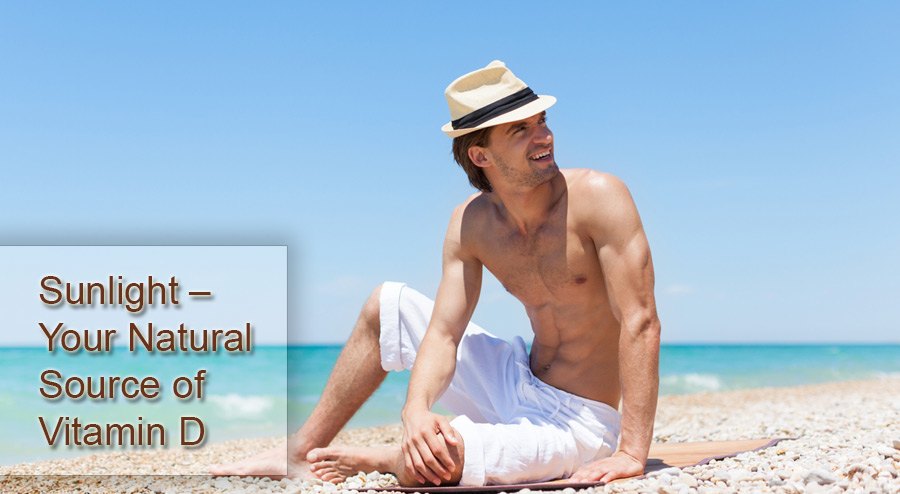
As covered previously, sunlight is the best natural resource (and free resource at that) that can help increase your vitamin D intake without a sweat (or maybe a little sweat). Of course, the sun does not contain any animal by-products and is completely free and easily accessible at any time of the day. Allow yourself at least 30 minutes of sunlight exposure to ensure you get in the needed amount of vitamin D.
If the sun isn’t a great option for you due to your work schedule or life in general, you may think a tanning bed is a great substitute for the sun. However, this would be an incorrect assumption. In fact, tanning beds can do more harm than good when it comes to your body and skin. Researchers have found that a majority of the tanning beds out in the market do not give off enough UV rays to produce the vitamin D you need. Therefore, you’re at risk of developing skin conditions such as skin cancer and other issues without actually reaping any of the potential benefits.
Vitamin D Deficiency
With veganism on the rise, more people are finding themselves with a vitamin D deficiency. Researchers have found that those who suffer from vitamin D deficiency suffer from more health concerns such as fatigue, depression, and muscle pain. While these are not on the only health problems that can arise from vitamin D deficiency, they are the most common.
Children are on the top of the list when it comes to being concerned about vitamin D deficiency. If a child develops vitamin D deficiency, they can develop painful bone disorders such as rickets. Rickets weakens the bones, stunt growth, and can even cause deformities in the most extreme cases. That means that ensuring your child gets the right amount of vitamin D (vegan or not) is highly important.
Between the ages of six and 36 months, children are most susceptible to rickets. You can identify rickets by paying close attention to low moods, digestive problems, and/or bowed legs. Identifying bowed legs may not happen until your child starts to walk, but you can be on the lookout for the other symptoms before then. With the increase in playtime indoors versus outdoor playtime where exposure to the sun is more likely, children are becoming more likely to develop a vitamin D deficiency if their food sources aren’t doing the job. Following a vegan lifestyle can exacerbate the chances of children developing a vitamin D deficiency in children, so it is important to be in tune with the foods your child eats.
Adults can experience similar problems when faced with vitamin D deficiency. They do not develop rickets but a condition of softening of the bones known as osteomalacia. You can treat this issue with supplements, but you can also avoid it from happening with the right foods that can provide your body with the vitamin D it needs before the problem occurs. If you notice frequent bone fractures, muscle weakness, or general pain in the bones, you may want to speak to your doctor about possible osteomalacia or vitamin D deficiency.
**Keep in mind that a complete vitamin D deficiency is not the same as having low levels of vitamin D. Complete vitamin D deficiency means that the body is not getting vitamin D at all and is not allowing the body to do the work of absorbing other ingredients. This can be extremely dangerous. Talk to your doctor if you’re concerned about complete vitamin D deficiency.
Which Vegan Foods Contain Vitamin D? Plant Sources Of Vitamin D
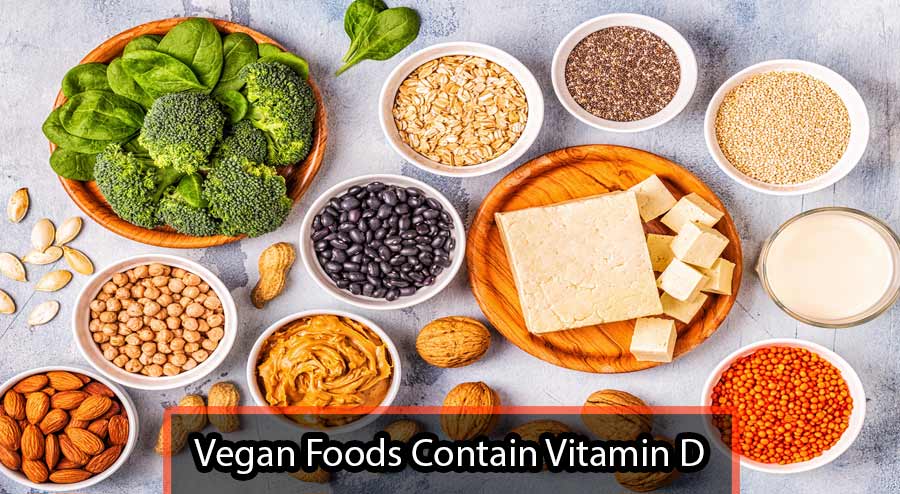 Another great question for most new vegan lovers out there is: “Which vegan foods actually contain vitamin D?” Not all foods are vegan and not all vegan food has the right amount of vitamin D you need. What does this mean? Basically, it means that you have to get familiar with the different types of vegan foods that do contain vitamin D in order to get them into your diet without any worry. Let’s take a look at some of the best food sources that can give you the vitamin D you need in your life.
Another great question for most new vegan lovers out there is: “Which vegan foods actually contain vitamin D?” Not all foods are vegan and not all vegan food has the right amount of vitamin D you need. What does this mean? Basically, it means that you have to get familiar with the different types of vegan foods that do contain vitamin D in order to get them into your diet without any worry. Let’s take a look at some of the best food sources that can give you the vitamin D you need in your life.
1. Mushrooms (Maitake and Portobello)
 Easy to find and delicious to boot, mushrooms of any kind are great sources of vitamin D. Some of the variations of mushrooms contain more vitamin D than others, which makes them high on the vegan priority list at the grocery store. They are wholly vegan and equally tasty.
Easy to find and delicious to boot, mushrooms of any kind are great sources of vitamin D. Some of the variations of mushrooms contain more vitamin D than others, which makes them high on the vegan priority list at the grocery store. They are wholly vegan and equally tasty.
Maitake mushrooms have 786 IU of vitamin D per cup. This is a great amount of vitamin D for one food source. You could easily add this into your daily food intake and ensure that you get the vitamin D you need. Another mushroom that is at the top of every vegan food list is the Portobello mushroom. One cup of Portobello mushrooms sliced up and ready to eat has 634 IU of vitamin D. You cannot go wrong with mushrooms in your vegan diet.
2. Soy Milk & Almond Milk
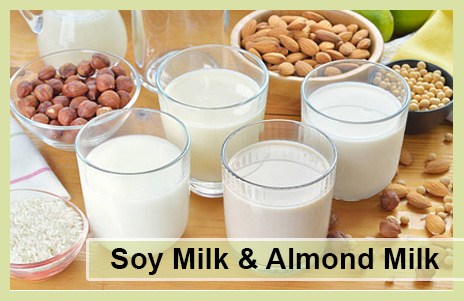 It’s safe to say that traditional cow’s milk is out of the question for a vitamin D source for a vegan. But, soy milk and almond milk certainly are not. It is important to check the label on your soy or almond milk before you assume it has the vitamin D you need in it. There is vitamin D fortified soy and almond milk on the market, so be sure to get that one instead of non-fortified brands. It is a great substitute for cow’s milk and has absolutely no animal products or by-products lurking inside. With 100 IU of vitamin D per cup, you can start your morning off with a nice dose of vitamin D.
It’s safe to say that traditional cow’s milk is out of the question for a vitamin D source for a vegan. But, soy milk and almond milk certainly are not. It is important to check the label on your soy or almond milk before you assume it has the vitamin D you need in it. There is vitamin D fortified soy and almond milk on the market, so be sure to get that one instead of non-fortified brands. It is a great substitute for cow’s milk and has absolutely no animal products or by-products lurking inside. With 100 IU of vitamin D per cup, you can start your morning off with a nice dose of vitamin D.
3. Orange Juice
Another great breakfast beverage that can be a great vitamin D source is orange juice. Also coming in at 100 IU of vitamin D per cup, orange juice stands up to soy and almond milk in the useful department. It’s a tasty way to fix a vitamin D deficiency in vegan diets that some are unaware is even a problem.
4. Soy Yogurt
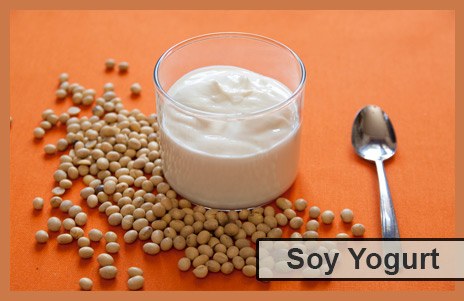 Coming in with 80 IU of vitamin D per 150 grams, soy yogurt is a great addition to any vegan breakfast and one of the best plant sources of vitamin d. It does not contain any milk products, which makes it a suitable vegan product. A great taste and a great amount of vitamin D makes soy yogurt a win-win for any vegan lifestyle.
Coming in with 80 IU of vitamin D per 150 grams, soy yogurt is a great addition to any vegan breakfast and one of the best plant sources of vitamin d. It does not contain any milk products, which makes it a suitable vegan product. A great taste and a great amount of vitamin D makes soy yogurt a win-win for any vegan lifestyle.
5. Ready-to-Eat Cereal
While ready-to-eat cereals that are fortified with vitamin D aren’t suitable for every single meal, they do offer some vitamin D. With 40 IU of vitamin D per ¾–1 cup, ready-to-eat cereal could be a great snack or breakfast item. It’s not the greatest source of vitamin D, but it could do the trick in a pinch.
6. Tofu
 Not all tofu has the right amount of vitamin D you may need, so be sure to check if it is fortified with vitamin D. Tofu is a great substitute for meat lovers as it gives the same taste and texture that animal meat does without containing the actual animal meat. You do want to ensure that your tofu is able to provide you with at least 20 percent of your recommended daily allowance to count it as your vitamin D source. Each brand is different, so read the labels and educate yourself properly.
Not all tofu has the right amount of vitamin D you may need, so be sure to check if it is fortified with vitamin D. Tofu is a great substitute for meat lovers as it gives the same taste and texture that animal meat does without containing the actual animal meat. You do want to ensure that your tofu is able to provide you with at least 20 percent of your recommended daily allowance to count it as your vitamin D source. Each brand is different, so read the labels and educate yourself properly.
7. Orange Juice
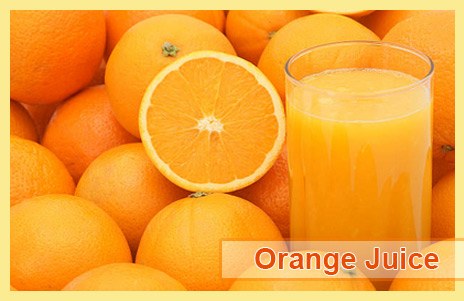 Another great vegan food with vitamin d is fortified orange juice which can provide you with 100 IU of vitamin D per cup, which is a good source of vitamin D. Orange juice can be a great addition to any meal and adds a tropical flavor your taste buds will enjoy.
Another great vegan food with vitamin d is fortified orange juice which can provide you with 100 IU of vitamin D per cup, which is a good source of vitamin D. Orange juice can be a great addition to any meal and adds a tropical flavor your taste buds will enjoy.
**It is important to understand what kinds of food you are eating on your vegan diet before determining whether they are good sources of vitamin D. Some foods are packed with vitamin D but can lose their vitamin D value through the cooking process. Therefore, it may be required to eat some of your foods raw in order to keep the vitamin D count high. Certain mushrooms require raw consumption as cooked consumption can cook the vitamin D right out.
Too Much of a Good Thing Can Be Bad
Everything in moderation—that’s a rule of thumb which is easy to live by and apply to so many different situations. Vitamin D is one of those situations. While not having enough vitamin D can be an issue, having too much vitamin D can also be problematic. Overexposure to vitamin D can cause intoxication. Be careful when trying to add vitamin D to your vegan diet as you do not want to overcompensate for a potential lack of vitamin D and cause more harm than good. With that said I hope you have enjoyed my guide to vegan foods with vitamin d.
Vegan Foods With Vitamin D – Conclusion
With the information you’ve gathered here, you are fully armed to give your body the right amount of vitamin D it needs while still living a vegan lifestyle! Being a vegan doesn’t mean you have to sacrifice your health. In fact, being a vegan means you’re doing what is best for your body. And because of that, you want to give your body the nutrients it needs to help you continue to live the best life you can.

Hi. I`m confused…do the items on the photo also contain vitamin D, or just the items listed below the photo? Thank you for this site and information. Kind regards from Hege.